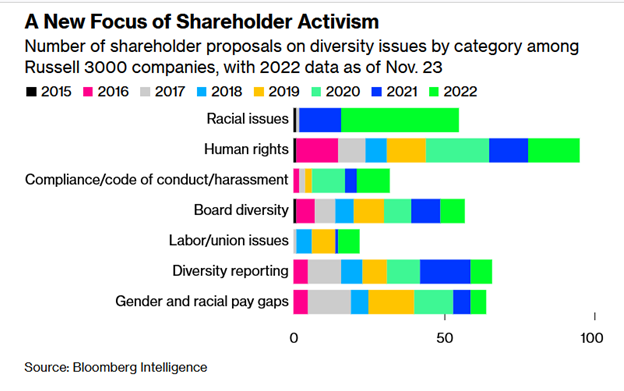Civil Rights and Racial Equity Audits
Recently, we have witnessed increasing focus from public companies within Environmental, Social and Governance (ESG), due to increasing requests by shareholders, for companies to conduct Civil Rights and Racial Equity Audits. The audits typically include an objective analysis and third party investigation into a company’s policies and practices to evaluate a company’s impact on environmental, social and governance (ESG) issues to identify inequities and establish baselines for progress toward improvement. After the killing of George Floyd in 2020, and the following social justice movements that led to social unrest, many companies announced a number of initiatives to address racial justice, including committing financial resources and reviewing their policies and practices that may be unintentionally contributing to racial inequities. However, many shareholder activist believe that companies cannot conduct their own audits objectively and encourage independent and objective investigations to identify a a company’s current reality to effectively establish baselines and benchmark progress.
Discover how our team of attorneys and Racial Equity consultants assess company’s using quantitative and qualitative data, evidenced-based research, six core competencies to advance Racial Equity, policies and practices review, governance, accountability structures and oversight to identify reputational and business risks, potential stakeholder scrutiny investigate EEO complaints and grievances. Our post-audit Racial Equity action plans include developing and establishing best-practices processes for the following components:
- Establishing and Clarifying Mission and Vision
- Identifying Governance Accountability Structures and Oversight
- Aligning Internal and External Racial Equity, diversity and Inclusion Efforts
- Providing a Glossary of Racial Equity terminology and concepts to Ensure Shared Language
- Creation of Strategic Objectives, Initiatives, Goals and Targets using evidenced-based Research
- Developing Metrics, Scorecard and Indicators using Best-practices
- Aligning Policy Advocacy and Corporate Lobbying Efforts to Racial Equity, Diversity and Inclusion
